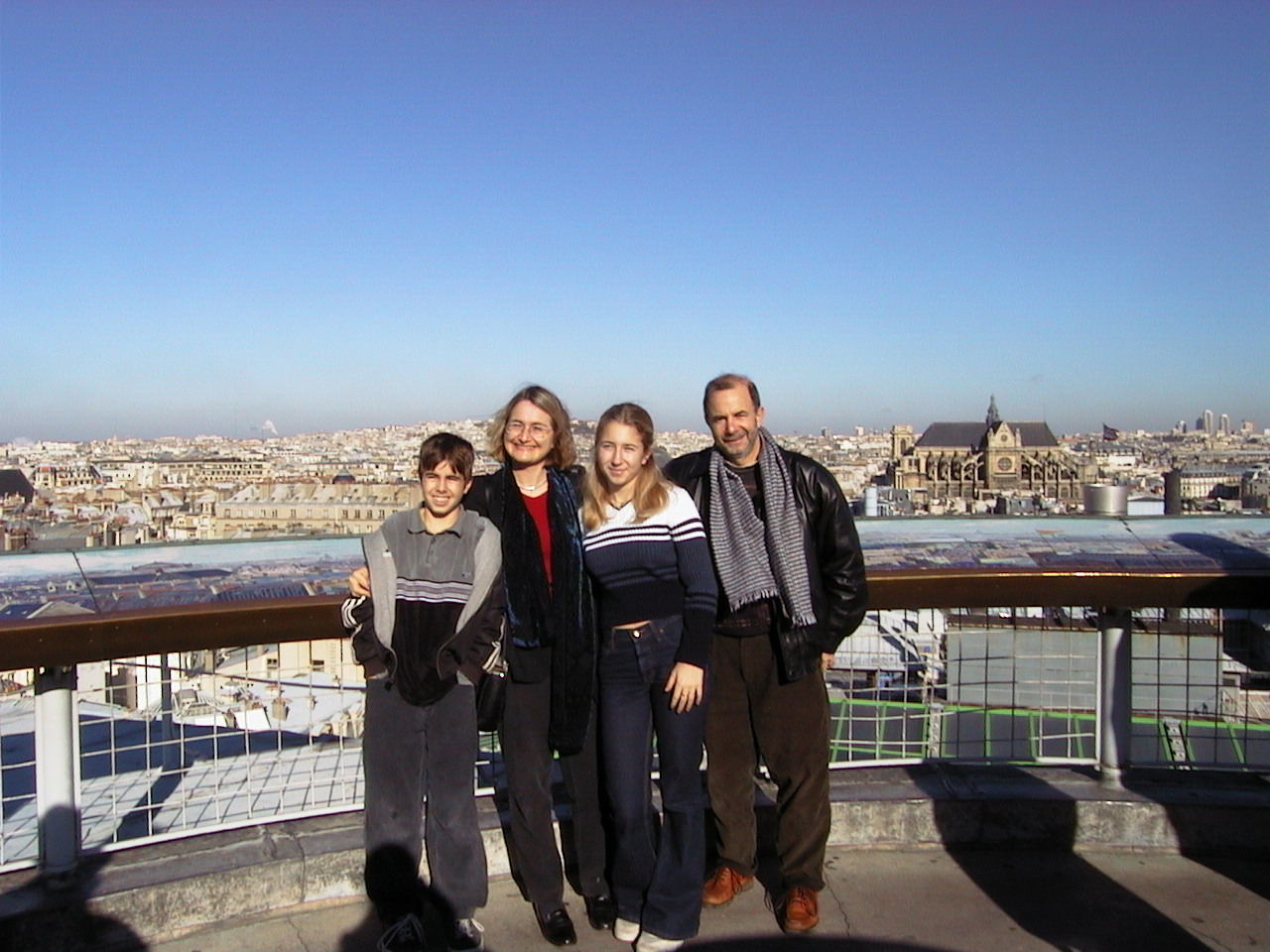
Stories from our Members of the Year
Dennis and Verena Seisun are longstanding members of the Diplomacy Council. With their generous spirits and love of meeting new people, Dennis and Verena have hosted countless visitors through home hospitality, attended our in-person and virtual events, and repeatedly gone above and beyond in their contributions to the San Diego Diplomacy Council (SDDC). Earlier this year, they were granted the Charles W. Hostler Citizen Diplomat Member of the Year Award at our Annual Members Appreciation Event. Lulu Bonning, our Program Officer, sat down with Dennis and Verena to learn about what inspires them to remain engaged in the international community, and how they keep their spirits up while being unable to travel.
Lulu Bonning (LB): Thank you so much for giving up some of your time today to have a chat with me, I really do appreciate it.
Dennis Seisun (DS): It’s a pleasure. I’m a people person so you’re one more person I get to meet… well, Zooming, unfortunately.
LB: I agree with you, I love meeting new people but that joy has been very stifled this year so far.
Are you ready? Shall we jump into it?
DS: We are ready. Basically, we love people. This is the perfect way to meet people from all over the world – literally. When we found out about it, it was a no-brainer for us to get involved.
LB: How long ago did you hear about the Diplomacy Council?
Verena Seisun (VS) I think early in 2017.
LB: You have been in San Diego while longer than three years, haven’t you?
DS: I think this year makes 40 – way before you were even born!
LB: So this is well and truly your home, and you have deep roots in San Diego. But neither of you was born in San Diego, correct? Where do you both come from?
DS: I was born in Alexandria, Egypt. From 0-14 years old I lived in Egypt, of Maltese ancestry. In 1964 we moved to what was at the time Rhodesia and is now Zimbabwe. So I went from the northern part of Africa to the southern part of Africa, then moved to the UK to go to University. Then, one of my first jobs after University was in France. I went back to the UK for a year, Belgium for three, 40 in San Diego and you add it all up and you come up with 69 this week, so there you are.
LB: Well, happy birthday!
VS: Similarly, I was born in Egypt. Our parents were friends actually, and Dennis went to the same preschool as my brother. When Nasser started nationalizing international schools and businesses, my family left Egypt to settle in Switzerland. Many years later, Dennis and I reconnected, got married in England, spent a couple of years in Belgium, and then moved to the US. While the kids were growing up, we signed up with an online home exchange club and were able to take the kids for one year to France, an experience we all fondly remember.

Alexandria, 1957 – Dennis beside Verena and her two brothers
LB: So you both most definitely have intrepid spirits!
DS: Yes. And actually, as Verena described, Lulu, this is probably a good indication of our belief that cultural exchanges are important. That belief led us to say that we don’t want our children to be only exposed to Southern California. We want them to know that the world is bigger.
VS: From a very young age we would always tell our kids that it was sheer luck they were born here, and not in a different economic situation, to teach them that there is no entitlement. I think, and I hope, that we have succeeded. And I strongly believe in an open-door policy. The more we have contact with everybody, the broader your horizons become.
LB: I couldn’t agree more. Also, I feel like the more people you meet and the more places you see, you realize the less you truly know and the more there is to discover. And the more you discover, the more you want to discover! It’s a never-ending conundrum, but a fantastic one.
May I ask, where are your children living now?
VS:: Our son is on the East Coast, and our daughter works all over Africa with the International Committee of the Red Cross.
LB: Well, I would say you have instilled that love for open-doors.
VS: Our daughter has had the travel bug since she was very little. And she has always wanted to work with the ICRC.
LB: It sounds amazing.
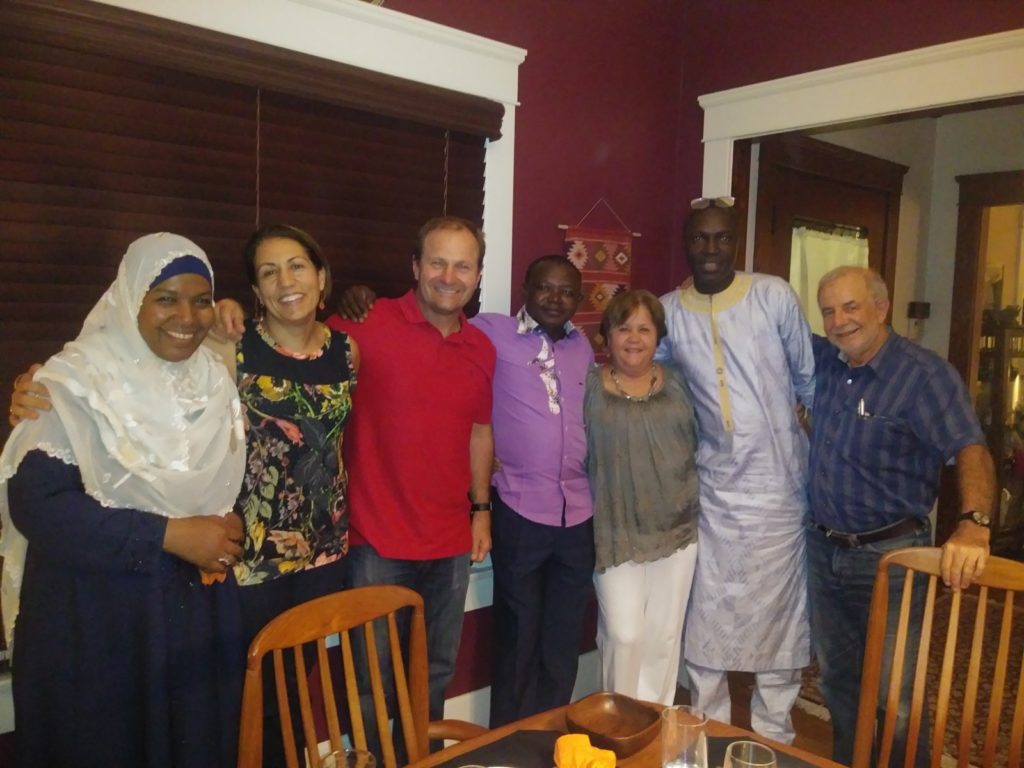
Home Hospitality Group
LB: So, let’s go back to your childhood. I’m curious, what languages did you speak, and what languages do you speak now?
DS: So my mother tongue… Well actually, let me reverse the question.
What would you call a mother tongue? The one that you speak best, or the one that you speak first?
LB: Hmmm… that’s a very interesting question. I would say that if you’re in a life or death situation, what language are you thinking in? When all sense and reason go out the window, what thoughts are you having?
DS: That’s a very good answer. Actually, thinking along those lines now, the language you dream in is perhaps your mother tongue. Anyway, we could have a whole discussion on that, but on to your question.
So, I started life speaking French first, but I am more comfortable in English now.
VS: I started with French at home, too. In Egypt, I went to a German school where French and Arabic were also taught. When we moved to Switzerland, I spoke German with my grandparents. and in school. So I consider German my first language, even though French probably was more prevalent in the first few years in Egypt.
DS: Here’s an interesting little tidbit: Verena’s more comfortable in German, and I’m more comfortable in English. So when we first met, we used to speak in French. Now, it’s a mix of the two. We speak Franglais!
LB: And Dennis, do you understand any German?
DS: A little bit. And of course, we both have some knowledge of Arabic.
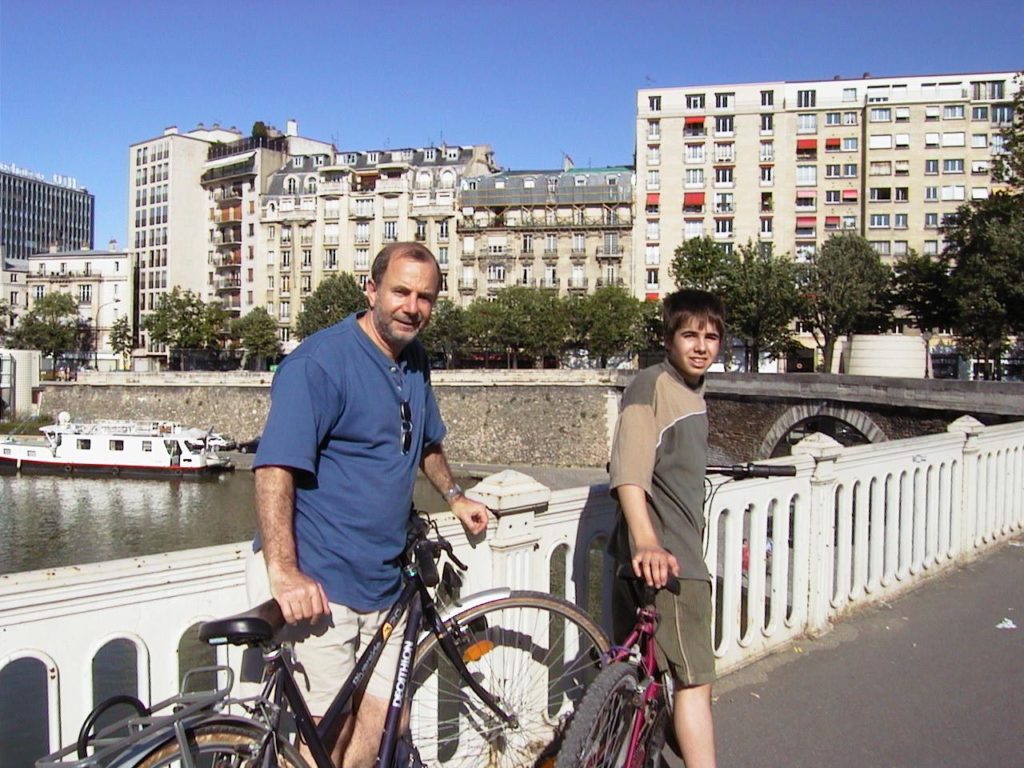
France
LB: When was the last time you visited Egypt?
DS: I went back just for old time’s sake maybe five or six years ago. And yea… it was interesting. I had left and not been back for many, many years. The streets that seemed huge when I was a child, all of a sudden were tiny little narrow streets. Your perspective changes.
VS: When I was in college, I went back and frankly was disappointed that my childhood memories were so different. I haven’t been back. I still would love to visit certain areas that I haven’t seen, and I’m hoping that one day I will get to do that.
DS: Very often when the Diplomacy Council hosts people from the Middle East, we tend to get those people over. One of the really interesting stories from those occasions – we went to pick up a group that included someone from Egypt. As we were driving them home, Verena and this person were talking about Verena being from Egypt and having gone to the German school there. The guest said, ‘I went to that German school, also!’
Verena says, ‘Really? You know, when I was there, there was a teacher who was a nun, called so-and-so ’
The guest replied, ‘Are you kidding me?! I had that same teacher!’
That kind of connectivity, decades after you’ve left the country, and meet someone who went to the same school, had the same teacher, was really amazing.
LB: What a moment! When you host visitors, particularly from Egypt and the North African region, do you feel like you can relate to them in terms of having a similar upbringing? Or do their experiences seem different to you, because you are both so cosmopolitan?
VS: I think it doesn’t really matter. It does help to know a bit more about their background. But when you welcome guests into your house, and there’s such a relaxed feeling of having dinner together, and everyone comes from such different backgrounds, you’re open to understanding, no matter who it is or where they’re coming from, whether they are from Egypt, or an activist from Thailand telling us about what she does for the Karen population, which, by the way, I didn’t even know about.
We once had a group, I think they were working on peace. We’re going back about two years. There was this one guy who was working in Burkina Faso. He was a Christian, working among a very small minority in a Muslim country. What he was saying about how he was working with the Imams to break down some barriers and preconceived prejudice on both sides, was so humbling and inspiring.
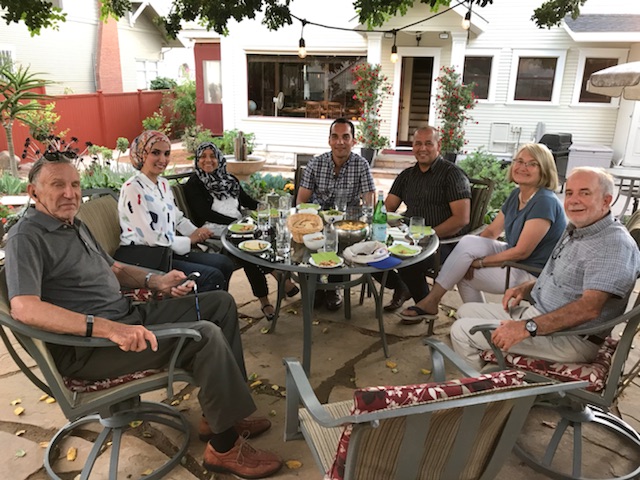
Home Hospitality Group
DS: The guests that come are of a very interesting nature. They’re activists in peace movements, human rights, women’s rights, children’s rights. Because of the way we think and the interests we have, they’re all fascinating people.
LB: They’re a pretty amazing cohort, aren’t they. There are always some interesting things to learn from them.
When you host visitors, do you always cook for them from your home? What are some of the meals that you enjoy preparing for the guests?
VS: One funny story – we had a group here once, and there was another group with a different host. The two groups were texting each other with photos of who was eating better –
DS: And who had the fanciest meal.
VS: – It was really a very fun group!
But what we are cooking could be anything. We usually get a list of who can eat what, so we have to take that into consideration. We could have fish or meat…
DS: Do we ever do burgers and hotdogs?
VS: Oh, no.
DS: I sometimes suggest that, but Verena always says no. We can’t have visitors from overseas and just give them hotdogs and burgers! But for me, that would be quintessentially American!
VS: But we have done apple pie, to make things American. I’m not sure how the visitors felt, but at least we could say it was very American.
DS: By the end of the meal – that’s the beauty of sharing and breaking bread, so to speak – we’ve really become close friends.
LB: What are some of the surprising and unexpected twists and turns that you’ve taken in life? Things that you haven’t envisioned?
DS: For our move to San Diego, the way it happened was such a serendipitous thing. We were living in Belgium where It rains nearly every day. I may be exaggerating a little, but not by much – we had started thinking about moving somewhere with a bit more sunshine.
I remember walking past the newspaper shop close to where we lived. It was raining, I had my umbrella. I had gone past it and was about 100ft away. Suddenly, I thought, ‘Wait a minute. Today’s Thursday. The day that the Daily Telegraph puts out jobs.’
I nearly said to myself, ‘Ah, I’ll just get it next week.’ But I stopped, I went back, and I bought the newspaper. And that was the only newspaper in Europe, and the only day, when the company that hired me in San Diego advertised. And if I had said, ‘I’ll just get the paper next week,’ who knows where we would have ended up.
Life is full of things like that.
LB: So you saw the ad –
DS: Yes, and then I applied, went to the interviews et cetera, got the job, and here we are.
That’s one of my forks in life. And who knows where we would have ended up had I not got that newspaper. Maybe it would have been somewhere as good as, maybe better, maybe worse. We’ll never know.
LB: Wow. That’s an amazing story.
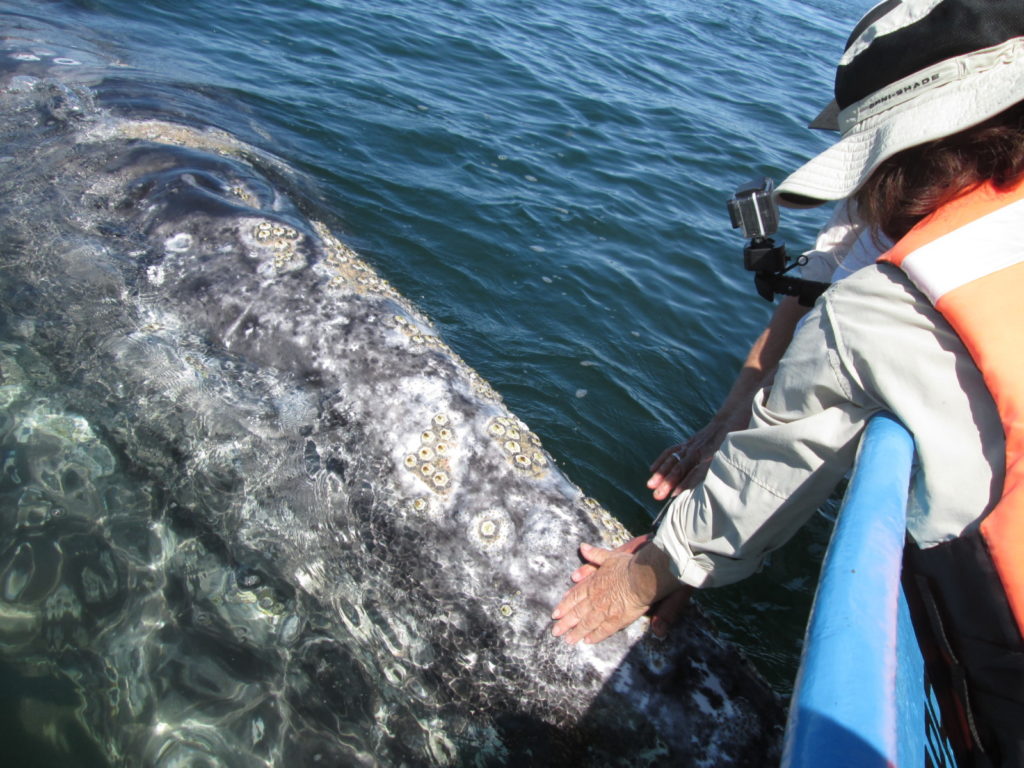
From one of the Seisun’s many trips to Baja
LB: You may have a similar answer, but I want to touch on another point. Can you think of a time when you had an incredible experience, either while traveling or hosting visitors that made you sit back and wonder, ‘Did that really just happen?’
DS: One of the groups we hosted included a lady from the town of Erbil, in Kurdistan. I’ll never forget this. We were sitting outside, it was summertime, and we were talking about Erbil. I think I’m safe in saying that neither Verena nor I had ever even heard of Erbil, never mind been there.
VS: It’s in Iraqi Kurdistan.
DS: So this person’s dad owned a hotel, and she warmly invited us to go and visit. Here we were thinking, ‘Kurdistan, Iraq… my goodness. As adventurous as we are, we might not think of going.’
Two months later, our daughter working for the Red Cross writes to us. She says, ‘I’ve got a new posting. It’s in Kurdistan.’ It was in a little town called Sulaymaniyah which is about 1.5 hours away from Erbil. All of a sudden, this town that we’d never heard of and learned about from a Diplomacy Council visitor became one of the most important places in our lives.
We never did go in the end, but we did connect our daughter with this person, and I think they spoke. Our daughter went to the hotel that was owned by this lady’s father as well. The point is, this kind of connection – we’d never even heard of this place, and all of a sudden our daughter was going to work there for a year. My biggest regret is that we never did get to go and visit. I kept meaning to, but the year went by and we never made it.
VS: All of the experiences we have through the Diplomacy Council are indelible.
LB: All have their unique things to share, don’t they.
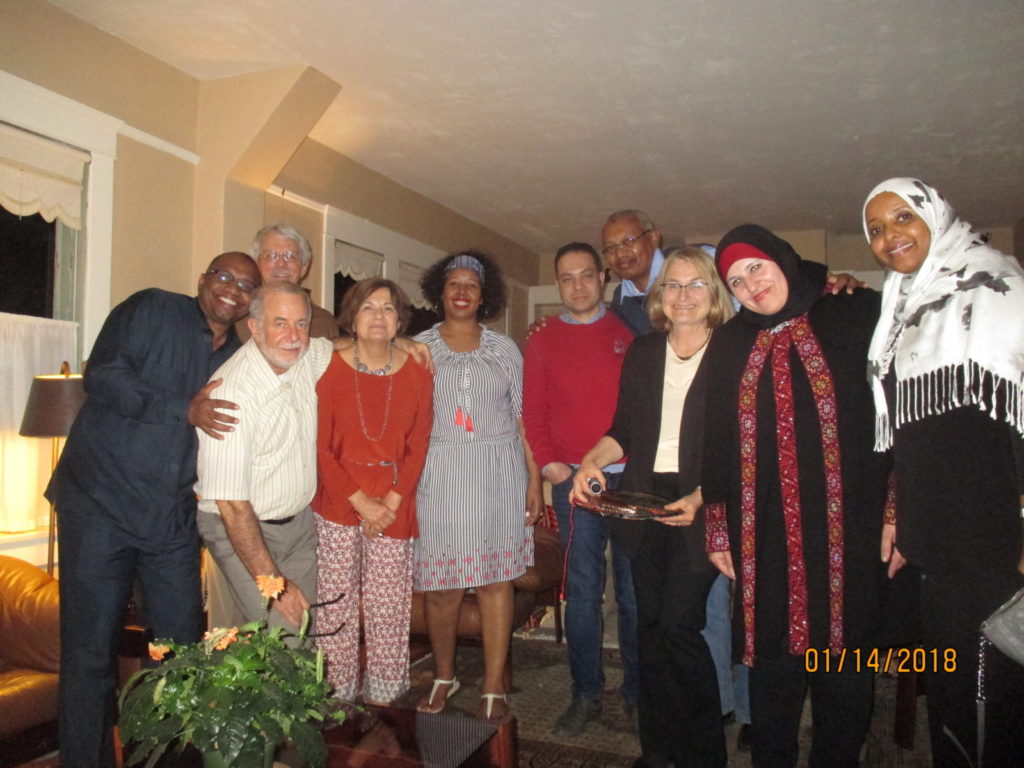
Home Hospitality Group
LB: You mentioned that you didn’t get to that town in Kurdistan. But we won’t be stuck in our homes forever. One day we will be able to travel internationally again. Are you already planning where you’re going to go next?
VS: In my case, given that I have a 95-year-old mother in Switzerland, hopefully, I can go visit her when they allow us to travel again. To me, that would be my very first thing.
DS: For a lot of us, it’s going to be family. I’ve got a sister who’s getting on in Sydney, who I might go and visit. I’ve got a brother who still lives in Africa, in Zimbabwe.
VS: We’re scattered all over the world. Dennis has Africa, Australia, my godmother is still alive and she’s in Canada. I promised her that I was going to see her this year, which I don’t think will happen.
LB: Basically, you both need to buy one of those global plane tickets where you can just hop on, and hop off!
VS: Indeed!
DS: Lulu, you asked us what people can do to become better global citizens. That was a tough one. I guess… talk about it to as many people as you can. Try and spread the word about the fact that there is an interchange that’s still going on, despite the current political climate that portrays a different image.
VS: We both strongly believe in face to face contact, which makes a big difference in understanding other people.
LB: It makes a huge difference, doesn’t it. Not just seeing a faraway country as a place on a map but realizing, ‘Oh, people live there. They have regular lives, they eat breakfast, as I do.’ There’s nothing quite like meeting people.
VS: It’s true.
DS: Really, you should be proud of the work that you’re doing, and the group you’re with Lulu. I don’t think you could have ended up in a better one. It was really nice of the Diplomacy Council to award us the citizen diplomat trophy, but really, you should give yourselves a trophy too.
VS: We have met, through your Global Social Hours, so many people who have done much more than we have. I really feel like we’re speaking for everybody that joins the Diplomacy Council, we’re not the only ones. We’re sharing that award with many.
LB: You guys are an extremely important part of what we do. So don’t undervalue your contributions, because they are incredible. As you know, we’re about so much more than just the work that the staff does, or the board does. We’re a whole community, and it takes a group effort. We’re citizen diplomats, but we are nothing without each other.
VS: Exactly. And we’re really looking forward to our next person to person dinner.
LB: We’ll all be celebrating that day!



Leave a Reply